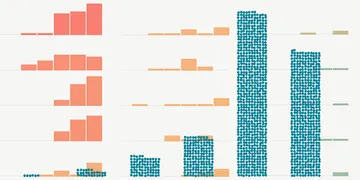Outside groups spent more money on campaigns for seats on top state courts nationwide than ever before, an analysis by The Brennan Center for Justice shows. At least one seat was at stake in 27 states on Election Day.
Special interest organizations — most of which don’t have to disclose their donors under campaign finance laws — put a record $19.4 million into TV ads for judicial candidates, over half of all TV spending in these races. The Republican State Leadership Committee spent the most of any group, putting $4 million into eight different races as part of its stated effort to elect more conservative justices.
The spending largely failed to unseat the judges it targeted. In Kansas, Washington and Mississippi, for example, justices held onto their jobs despite costly efforts to remove them.
But spending by outside groups isn’t expected to drop off. As some experts pointed out, many judges were able to win re-election because they had plenty of money in their corner, too. “I think it can be misleading to just look at money going to challengers who lose and then concluding the money had no impact,” said Alicia Bannon, who closely follows judicial elections as senior counsel for the Brennan Center’s Democracy Program. “I fear the lesson is that money is important and may encourage more spending.”
As is often the case, most of the attack ads accused judges of being “soft on crime.” An increase in outside spending often means more such attack ads, as judges’ own campaigns are governed by strict rules that don’t allow them to discuss specific cases. In Montana, in an ad campaign paid for by the Republican State Leadership Committee, Judge Dirk Sandefur was dubbed “Set ‘Em Free Sandefur.” In Washington, a PAC created by local businessmen accused Justice Charlie Wiggins of “enabling predators.” And in Louisiana, groups called the Center for Individual Freedom and Citizens for Judicial Excellence criticized Judge Jimmy Genovese for multiple rulings in sexual assault and robbery cases.
All three judges won. But research shows that even if these attacks don’t swing an election, they could make judges less likely to rule in favor of criminal defendants in the future.
Kansas was one state where criminal justice took center stage when a coalition of conservative groups targeted four of the five justices who were facing a vote on whether they should be retained in office. Among them was a group called Kansans for Justice, which spent $880,880 on ads criticizing the justices for overturning capital convictions, particularly in an infamous 2000 case known as the Wichita Massacre, when brothers Reginald and Jonathan Carr robbed, raped and murdered five people. The group said they were led by victims’ families and not political operatives. (The fifth justice up for election was not yet on the bench when the case was decided.) “In 2014, the Kansas Supreme Court overturned the Carr brothers’ death sentence on a technicality,” one TV spot claimed. “The Kansas Supreme Court is out of control.” (The justices had found the jury wasn’t given proper instructions and that the men should have received separate sentencing hearings.)
Supporters of the justices, under a group called Kansans for Fair Courts, fought back by spending nearly $800,000 on ads that said the anti-retention effort was a political play by Gov. Sam Brownback to pack the court with his personal choices. Their ads also touted a tough-on-crime stance, cheering the justices for cases where they “upheld the death penalty and kept us safe.”
The four justices targeted by the ads won their retention election with support from roughly 56 percent of voters. But Justice Caleb Stegall, who was not targeted in the ads, won with 71 percent.
